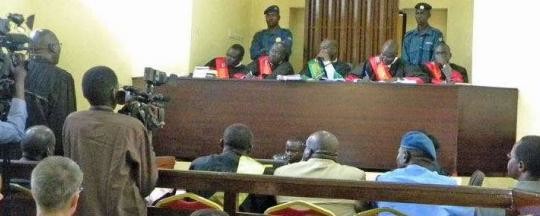The open-ended strike being staged by judges in South Sudan has entered its third day, without any convincing response from the new coalition government, according to one of the strike leaders.
Hundreds of South Sudanese judges went on strike on Monday to demand better working conditions and the reimbursement of four years of expenses.
Khalid Mohamed Abdullah, head of the striking judges committee, told Radio Tamazuj that the strike is continuing. However, he said negotiations are ongoing with the presidential legal advisor, Lawrence Korbandi.
Justice Abdullah further said the unpaid wages is not the main reason for their strike, saying instead the reason for the strike is bad working conditions for the judges. He pointed out that courtrooms are dilapidated across South Sudan, besides the lack of essential services.
“We should be frank: the infrastructure of the judiciary in South Sudan is very poor, lack of courts in some areas is a result of limited number of judges compared to the population in this vast land,” said Abdullah.
The judge stressed the need for an independent judiciary without any interference from the executive government. Abdullah also deplored lack of court police personnel, saying this also threatens their security at work and in their various residential areas.
Abdullah also complained about lack of vehicles to transport the judge. He indicated that the provision of essential services and improvement of working conditions needs a lasting peace in South Sudan.
In 2014, a group of judges submitted a petition to their leadership in which they demanded promotions, pay of arrears, training and issuance of ID cards, but with any response.
President Salva Kiir recently issued a decree promoting some judges after they threatened to go for an open-ended strike.
Lecturers at the country’s five public universities have also been on strike since late May to demand three months of unpaid salaries and benefits.




